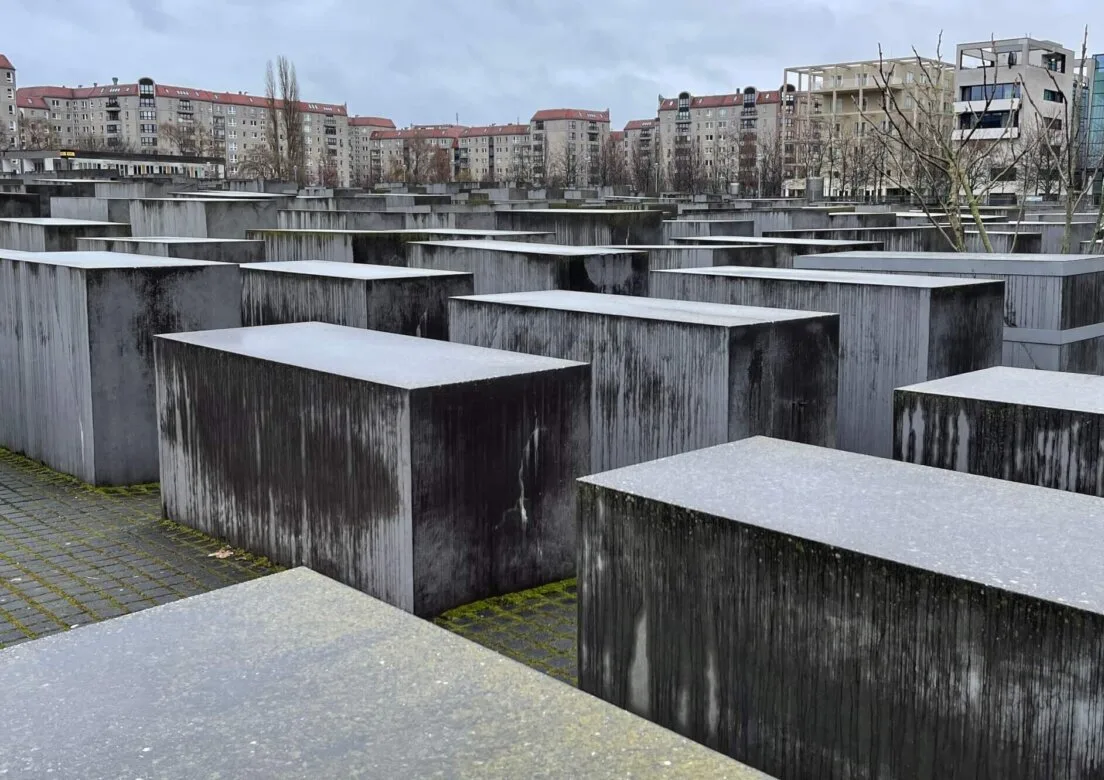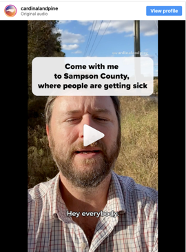
The Memorial to the Murdered Jews of Europe in Berlin, Germany. Photo Credit: Dylan Rhoney
International Holocaust Day will be observed on January 27, 2024.
This day commemorates the liberation of the Auschwitz concentration camp by the Russians on January 27, 1945. When I mention this to people, my first response is, “Why is this important to remember?”
International Holocaust Day reinforces the importance of studying the Holocaust.
In 2021, the North Carolina General Assembly and Governor Cooper passed the Gizella Abramson Holocaust Education Act, providing $400,000 in funds to the North Carolina Department of Public Instruction to write curriculum and to train teachers on how to teach the Holocaust to their students.
A structured inquiry into Holocaust history yields critical lessons about basic moral issues and human behavior. A study of the Holocaust also addresses one of the central tenets of education in the United States – to examine what it means to be a responsible citizen.
Through a study of the Holocaust, students can come to realize that silence and indifference to the suffering of others or to the infringement of civil rights, however unintentional, will perpetuate problems in society.
Through a study of the Holocaust, students can come to realize that:
- democratic institutions and values are not automatically sustained, but need to be appreciated, nurtured, and protected; and
- the Holocaust was not an accident in history – it occurred because individuals, organizations, and governments made choices that not only legalized discrimination, but allowed prejudice, hatred, and mass murder to occur.
Holocaust education is a collection of comprehensive lesson plans that consist of ethics and history. Holocaust education explains and illustrates what happens to a society when hatred and discrimination permeate all phases of public policy and thinking. Holocaust education will teach students how to think, write, and use facts and concepts to create essays, poems, narratives, editorials, music and artwork on human nature, racial insensitivities, prejudices, community involvement, plurality, diversity, citizenship, tolerance, ethics, and morality.
We have found that many students demonstrate a high level of interest in studying the Holocaust because the subject raises questions of fairness, justice, individual identity, peer pressure, bullying, conformity, and indifference – issues that adolescents confront daily. Students are also struck by the magnitude of the Holocaust, and by the fact that so many people acting as collaborators, perpetrators, and bystanders allowed genocide to occur by failing to protest or resist.
As students gain insight into the many historical, social, religious, political, and economic factors which cumulatively resulted in the Holocaust, they gain a perspective on how history happens, and how a convergence of factors can contribute to the disintegration of civilized values.
Let us integrate the lessons from the Holocaust into the proper and appropriate context of our daily lives to vow that we will not allow such hatred to permeate our community.

VIDEO: How Rural Broadband Is Coming to This North Carolina County
More than 1.1 million North Carolinians lack access to high-speed internet, a necessity of the modern economy. In Warren County, help is on the way,...

VIDEO: Sampson County puts Biden’s promise to boost rural infrastructure to the test
Locals in this rural NC county say their water and air is polluted by a PFAS-contaminated landfill, massive hog and poultry farms, and industrial...

Mold and classes in trailers: Inadequate funding for schools is hurting NC communities
Schools across the state are dealing with dilapidated classrooms and buildings in need of significant repair or a total rebuild due to a lack of...

‘TransGiving’: Raleigh LGTBQ center has a seat at the table for everyone
Thanksgiving can be a hard time to be around family, especially for those in the trans community. The LGBTQ Center of Raleigh invites those looking...







